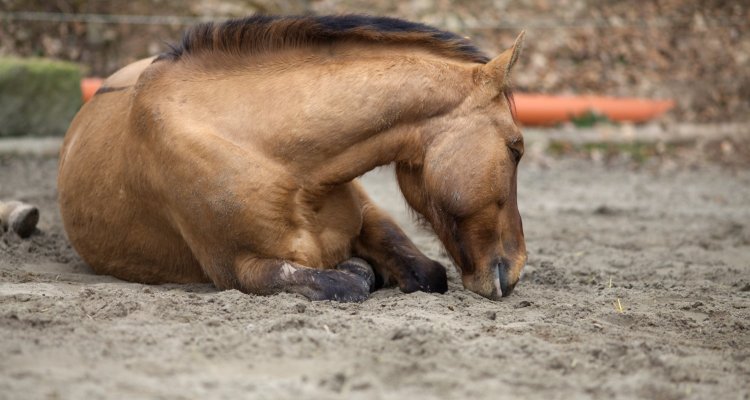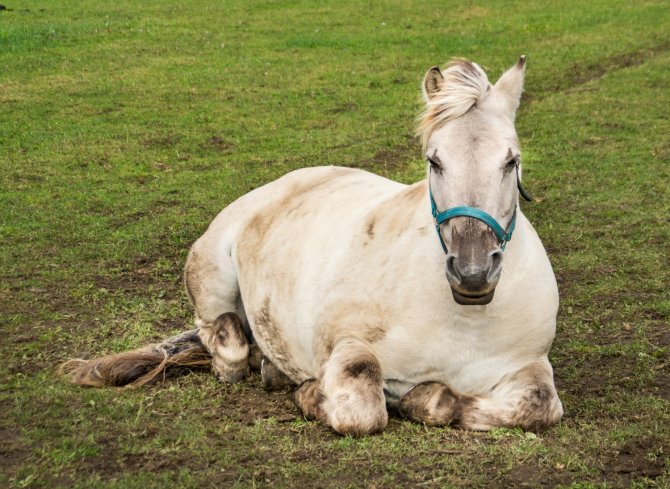
News
Over 400,000 euros for humane research on equine digestive system
Bacin2DLiver is to receive almost half a million euros in funding through the Dutch Research Council’s (NWO) Open Technology Programme. This research programme, headed by Wouter Hendriks, will deploy different technologies to humanely study disrupted intestinal flora in horses.
A total of 4.3 million euros is made available to fund research with societal applications within the NWO Open Technology Programme. Professor of Animal Nutrition at Wageningen University and Utrecht University, Wouter Hendriks, and a team of researchers from both universities, will receive a sum of just under half a million euros. The funds will go towards a study on new, humane methods to investigate disrupted intestinal flora in horses. ‘Having the government and private sector release this amount of funding for an equine-specific study is unique’, says Hendriks.
Digestive issues can lead to severe problems in horses, such as hoof wall infections and some types of colic. Studies in metabolic diseases in equines are currently very invasive and intense. ‘In our study, different technologies are converged in a single platform that enables scientists to study the equine liver-intestinal system in the lab’, Hendriks explains. ‘This allows us to study the effects of nutrition in the equine digestive system, to which we currently have very limited access.’
Simulating digestion
Laminitis is a serious condition caused by a painful inflammatory response in the hoof. Some 37 per cent of all horses and ponies are affected at some point. ‘Laminitis has many different causes, but, from a nutritional perspective, foods that are high in sugars and starch, are the main causes’, Hendriks states. ‘Our platform allows us to study precisely how these affect the equine liver and intestinal system.’

Researchers modify a process that is already being used to simulate the digestive system of other animals to make it suitable for research on equine digestion outside of the living animal. The team of scientists from Wageningen and Utrecht Universities is mainly interested in the part that remains undigested and is fermented in the colon. The researchers study material found in horse manure or in the intestines of cadavers. ‘We work on the undigested material to further study the fermentation process in the appendix and colon.
Studying mini-organs
‘We are also interested in the metabolites generated by intestinal bacteria’, Hendriks says. ‘These may be considered weapons deployed by bacteria in chemical warfare. One bacterium produces a molecule that the other bacterium is unable to process. That is called a metabolite. We want to know what metabolites are produced if a horse eats a lot of wheat or grass and how these influence the liver-intestinal system.’
Scientists use organoids to study the effects of these substances. Organoids are “miniature organs” made from equine stem cells grown into intestinal or liver cells. ‘Organoids enable us to mimic the effect of disrupted intestinal flora on these organs and reveal how the liver processes harmful substances. We expect to see that certain conditions prompt the production of substances that cause an inflammatory response.’
Humane digestive research
‘Our research yields a set of clearly controlled experiments that enables scientists around the globe to simulate equine digestion. Moreover, future researchers can continue to expand our platform so that even more processes in the equine body may be simulated’, Hendriks clarifies. A paradigm shift is needed in the domain of invasive research on animals, the NWO National Science Agenda states. ‘This project contributes to a transition towards research that requires no live animals.’
The equine sector -feed manufacturers, for example- benefit from the research. The Dutch equine sector has a turnover of over one-and-a-half billion euros annually. ‘The platform will also serve to study animals with similar digestive systems, such as donkeys and bovines’, according to Hendriks.
Bacin2DLiver is a partnership between Wageningen University & Research and Utrecht University, the two universities that do a considerable amount of research on horses. Bacin2DLiver is supported by Cavalor, PAVO, Mad Barn and the Equine Sector Council. ‘Seeing so many different groups and researchers join forces in this study on the effect of nutrition in equine health and wellbeing is fantastic.’